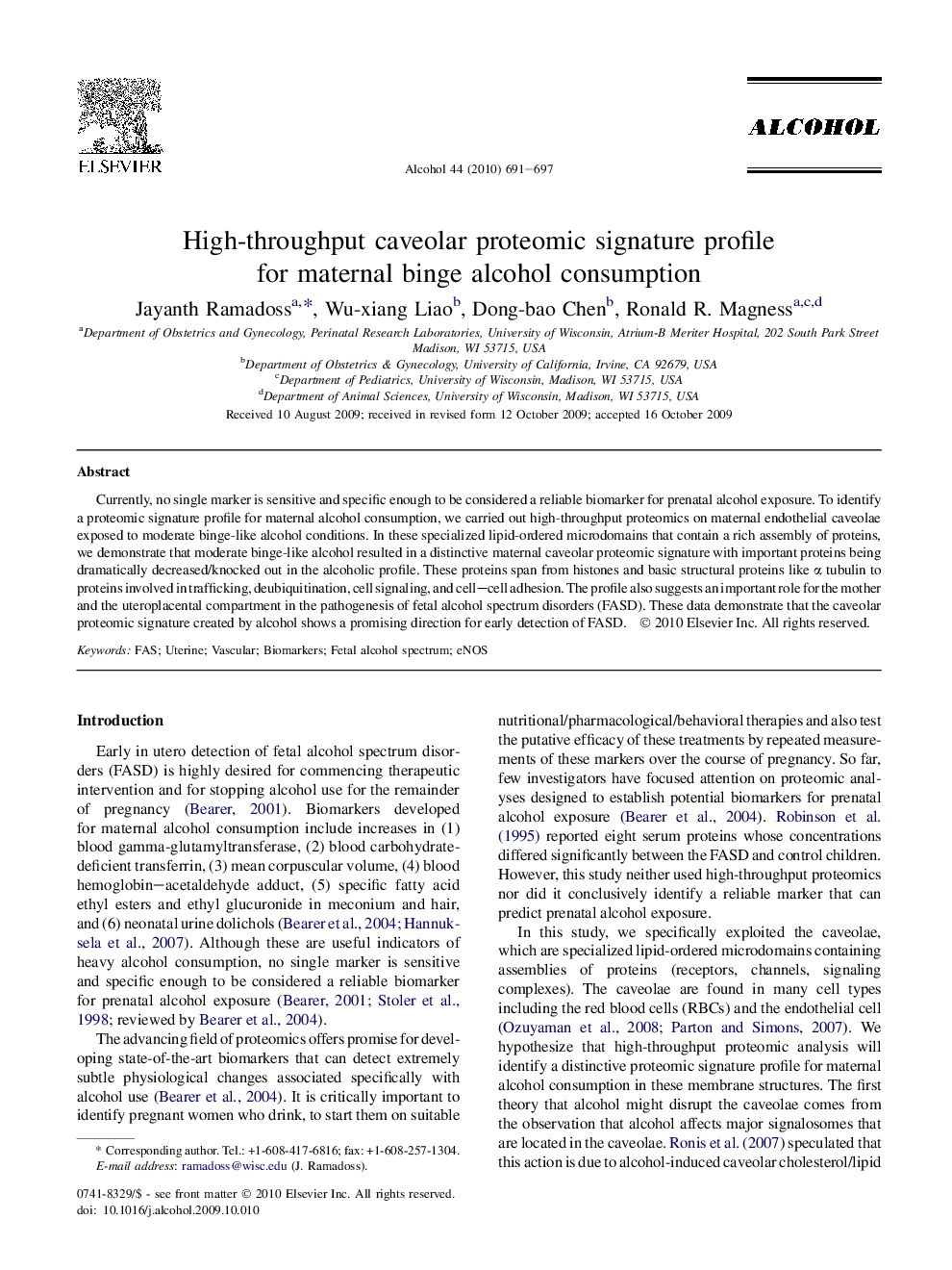| Article ID | Journal | Published Year | Pages | File Type |
|---|---|---|---|---|
| 1067098 | Alcohol | 2010 | 7 Pages |
Currently, no single marker is sensitive and specific enough to be considered a reliable biomarker for prenatal alcohol exposure. To identify a proteomic signature profile for maternal alcohol consumption, we carried out high-throughput proteomics on maternal endothelial caveolae exposed to moderate binge-like alcohol conditions. In these specialized lipid-ordered microdomains that contain a rich assembly of proteins, we demonstrate that moderate binge-like alcohol resulted in a distinctive maternal caveolar proteomic signature with important proteins being dramatically decreased/knocked out in the alcoholic profile. These proteins span from histones and basic structural proteins like α tubulin to proteins involved in trafficking, deubiquitination, cell signaling, and cell–cell adhesion. The profile also suggests an important role for the mother and the uteroplacental compartment in the pathogenesis of fetal alcohol spectrum disorders (FASD). These data demonstrate that the caveolar proteomic signature created by alcohol shows a promising direction for early detection of FASD.
